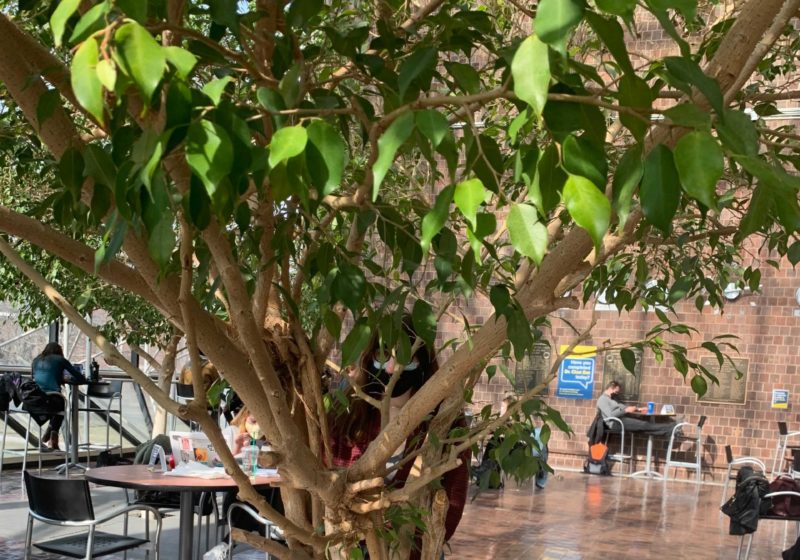Following weeks of rumors and whispers of sightings, little has been confirmed about the origins of the 5’2” campus myth. First seen on March 8 in Hirst Lounge, the identity or origin of what some are calling “Lil Nosey” is otherwise unknown.
Lil Nosey’s arrival to campus has brought a feeling of community once again. They have breathed life into a campus that has been struggling to create a firm community in the middle of a pandemic. Students have gathered to discuss theories and go on hikes in hopes of seeing the infamous nose, and Instagram accounts compiling (unverified) data have emerged. It’s rare that you pass a table in Hirst Lounge without hearing about Lil Nosey. More recently, we’ve seen an increase of students wearing glasses to mimic their facial details in solidarity.
Lil Nosey has been seen throughout campus with a comically large nose, mustache, glasses, and eyebrows. Including sightings of them on the First-Year Quad, by the docks (sources close to Lil Nosey claim that they were just enjoying the water, and nothing else), in Zoom lectures over 69 people, and often around trees. It’s unclear what brought them here and why they have stayed. However, while Lil Nosey has brought excitement back to a burnt-out campus, controversy has arisen over whether we should be glorifying such a problematic figure.
The center of Lil Nosey’s controversy is that they have been seen throughout campus without a mask on. Like those who claim to want to “return to normalcy” more than anyone else, they refuse to do anything to try and make progress towards that.
Although Lil Nosey refuses to wear a mask, there’s conversation about whether they even need a mask. While unconfirmed if they are actually human, it’s a possibility that they could not carry COVID-19 in the first place. Other theorists suggest that the moustache is so thick it catches particles and functions as an evolutionary mask.
“No matter what, I just can’t imagine such a benevolent creature so stupidly ignoring the public health of the University. Sure I don’t know them, but I just really think they’re a good person-creature-thing” said Dr. Kristin Havenger, chief myth epidemiologist and professor here at the University.
The stories of Lil Nosey’s benevolence don’t stop with Havenger. First-year Tony Meatball told us about his own experience with the legend. “It was Valentine’s Day, and I had just gotten dumped by one of my girlfriends. They came up to me and just quietly handed me a single rose, but it really meant something to both of us. Does anyone have their number?”
The effects of cancellation are great for any public figure, but we worry much about Lil Nosey ourselves. In a time of isolation, Lil Nosey has allowed the campus community to connect on a different level. There are Lil Nosey fan clubs and UCC therapy groups for after one has had a sighting, and the culture around finding out who they are has done the great service of distracting people from UR Confessions. We worry that the harsh consequences of cancelling will hurt not only Lil Nosey, but the community as a whole.
No matter what the outcome with Lil Nosey, their effects on this campus should not be overlooked. Becoming a makeshift mascot after even Rocky gat laid off because of COVID-19 budget cuts, Lil Nosey has changed our campus identity. For better or worse, Lil Nosey is immortalized in students’ hearts, but maybe the true Lil Nosey was the friends we made along the way.


